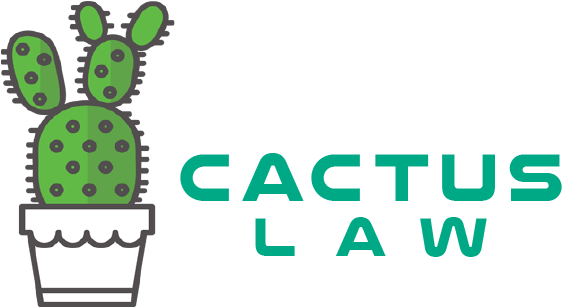Defamation Laws in Canada
Defamation is a tort action in which the plaintiff claims that its reputation has been harmed. The defendant is accused of “defaming” the plaintiff by spreading incorrect information. In layman’s terms, the plaintiff claims that the defendant injured their reputation by spreading falsehoods about them. Defamation law strives to protect a person’s reputation, which is intrinsically tied to his or her human dignity. However, a variety of defenses have evolved to preserve other essential principles, such as freedom of expression and press. Who Has the Right to Sue and Can be Sued? Plaintiffs A defamation action is a personal action. Only someone who feels they have been defamed may file a lawsuit. A plaintiff must be able to plausibly assert that their reputation has been harmed for the claim to be successful. Plaintiffs in a defamation action may include: Any living individual can be a plaintiff in a defamation case. Unlike in some other nations, public people in Canada can sue for defamation. Legal entities, such as corporations. For example, instances such as where plaintiffs have been non-profit corporations that owned a senior’s residence home. The following are not admissible in a defamation claim: A deceased person’s estate. The law of defamation only applies to live people’s reputations. Governments accusing private individuals of slander. This is related to the promise of free expression. Of course, no plaintiff will prevail until all elements of the cause of action are proven. Defendants When it comes to who might potentially be held responsible for defamation, the law throws a broad net. Anyone who “publishes” defamatory material can be sued. When defamation is repeated, the original author may be held responsible if: They approved it; or The republication is a natural and expected outcome of the initial publication. Multiple Defendants’ Liability Defendants in defamation cases should be aware that even if they had a tiny role in the sequence of events, they may bear entire responsibility for the defamation. For example, in Botiuk, the lawyers who signed the Lawyers’ Declaration were jointly and severally liable for the full extent of damage caused by other statements made by the primary defendant because they did not limit the use of the declaration. Similarly, under the concepts of concerted action liability, numerous defendants might be found responsible. Secondary defendants should be cautious when a tort, like as defamation, is committed in pursuit of a shared intent or plan to do injury to the plaintiff. All who committed any of the following can be held equally liable with a major offender (for example, the author of the defamatory statements): Actively participated. Aided it via cooperation or request. Assisting or encouraging the principal offender. Approved and embraced the wrongdoer’s actions for their own gain. Defamation Elements: Dissecting the Cause of Action To prevail in a defamation suit, whether for libel or slander, the plaintiff must show: That the statements in dispute are defamatory. That the plaintiff was alluded to by the terms. That the statements were spoken to at least one person other than the plaintiff. If the plaintiff can establish these three factors, falsehood and harm are […]
Read moreToronto’s Short-Term Rental Regime
The following article is a summary of the City’s short-term rental laws. The new system allows short-term rentals in any owner’s or tenant’s primary house in residential and mixed-use zones, subject to several restrictions designed to balance several conflicting policy objectives, including the City’s worries about a lack of private rental housing. Low vacancy rates, along with busy tourist seasons, have resulted in large growth in short-term rentals in Toronto and other major urban regions. The development of websites like Airbnb and VRBO has made it simpler for owners and renters to interact and enter into private rental arrangements. With the aforementioned factors in mind, the City decided to create a regulatory framework controlling short-term rentals. The Short-Term Rental Regime The City’s short-term rental system consists of three components: (i) zoning by-laws, (ii) a licensing and registration scheme for short-term rental operators and corporations, and (iii) short-term rental operator taxation. Zoning By-Laws The short-term rental zoning bylaws only allow individuals or businesses to operate “short-term rentals” under certain conditions. A “short-term rental” is defined as all or part of a dwelling unit that is (i) utilized to offer sleeping accommodations for a rental period of no more than 28 days and (ii) the “principal home” of the person managing the rental. A “primary home” is a “dwelling unit owned or rented by an individual person, either alone or jointly with others, where the individual person is normally resident.” Both homeowners and tenants are authorized to rent out their primary house for a limited time. Subject to potentially unresolved issues concerning legal non-conforming uses, the requirement that a short-term rental unit be a “principal residence” is significant because it prohibits a person from purchasing or leasing a dwelling unit solely for the purpose of offering it for short-term rental accommodation year-round. It also makes it impossible for a person to have numerous listings on Airbnb or VRBO. If the rental is for the full home or up to three bedrooms within a primary dwelling, it is a “permitted use.” Short-term rentals are allowed in secondary suites if the secondary suite is the operator’s primary residence. A short-term rental operator may only rent out their full property for a total of 180 nights each year. Short-Term Rental Licensing and Registration Anyone who plans to promote or offer their primary house for short-term rental must register with the City of Toronto’s Municipal Licensing and Standards department and acquire a license to do so. Each license will be valid for one year and must be renewed within 90 days of the expiration date. To register a property for short-term rental usage, the operator must supply the City with some basic information, declare that the rental address is their primary residence, and preserve records of all short-term rental activities, which must be submitted to the City upon request. The operator must also offer emergency information to all visitors, include the phone number of a person who is accessible 24 hours a day, and pay a $50 yearly registration fee. Companies that provide short-term rentals, such as Airbnb and VRBO, are subject to extra regulations. A short-term […]
Read moreVacancy Tax in Toronto
The City of Toronto is planning to start taxing unoccupied houses in order to discourage real estate speculators from buying up homes and leaving them empty as locals struggle to find affordable accommodation. While the federal government has revealed plans to introduce a national unoccupied house tax, local administration has stated that both can coexist and that a federal tax would not prohibit the city from charging its inhabitants. The executive committee of Mayor John Tory has overwhelmingly endorsed a municipal staff recommendation to introduce a 1% empty house tax beginning Jan. 1, 2022. The plan was presented to council for approval and public discussions will follow. The vacancy house tax is similar to one imposed by Vancouver in 2018 in response to a housing crisis and low vacancy rates. The City of Toronto authorized the installation of the new tax on unoccupied Toronto properties on December 16, 2020. The new levy is projected to produce at least $55 million to $66 million in annual tax revenue. While further information on the tax development process will be released later in 2021, it is believed that Toronto’s vacant house tax will be modeled after Vancouver’s vacancy tax. The latter was enacted by the provincial government of British Columbia in 2016 and went into force in 2017. Vacancy Tax in British Columbia Certain unoccupied properties in the city of Vancouver are subject to a 1% – 1.25% tax on the assessed value of the property under British Columbia’s Vacancy Tax Bylaw No. 11674. Unpaid payments linked to the vacancy tax are subject to a 5% penalty. The vacancy tax in Vancouver applies to any taxable property as defined by the provincial bylaw. Taxable property is unoccupied residential property that is not exempt from taxes and is not exempt from the vacancy tax. Residential property is classified as class 1 property, which includes single-family homes, duplexes, multi-family homes, apartments, and condos. Vacant property is also defined as residential property that has been vacant for more than 180 days between January 1 and December 31 of the year (“Period”) or as otherwise determined by the rules. A property that is the occupier’s primary residence or is rented out for at least 30 days in a row will not be considered vacant. Uninhabitable properties that do not qualify for one of the specified exemptions are typically taxed. Since the vacancy tax went into force on January 1, 2017, all Vancouver homeowners have been obliged to submit a property tax statement each year. If the homeowner fails to submit a statement or makes a fraudulent declaration, the property is considered empty under the regulations and may be liable to the vacancy tax if the other conditions are met. Exemptions from Vacancy Tax There are exemptions from the vacancy tax. Homeowners who are absent from their property for more than 180 days owing to death, property improvements, hospitalization, or a court order are exempt from paying the vacancy tax under the Vancouver bylaw. Additional exemptions apply to some stratum units and property with a restricted legal use. Homeowners are also free from the vacancy tax if they […]
Read moreAn Overview of Partnership Taxation in Canada
Types of Partnerships A partnership is a business arrangement between two or more people who do business together for profit (section 2, Partnerships Act, R.S.O. 1990, c. P.5). Notably, a partnership is not a separate legal entity from its partners. Certain legislation, however, such as the Excise Tax Act, R.S.C. 1985, c. E-15, may effectively treat a partnership as a person or other legal entity for the purposes of the applicable statute. How Partnerships and Their Partners are Taxed For the purposes of the Income Tax Act, R.S.C. 1985, c. 1 (5th Supp.) (Income Tax Act), a partnership is not a taxable entity. The income or loss of a partnership, on the other hand, is calculated as if it were a distinct person living in Canada whose taxation year was its fiscal year (section 96(1)(a), (b), Income Tax Act). The partnership’s net revenue or loss for each fiscal period is subsequently awarded to the partners (and, in some cases, former partners). As an exception to these basic ideas, certain partnership resource expenditures are not subtracted in calculating partnership revenue but are instead distributed to the partners directly for purposes of computing the income of the respective partners. A partner’s share of the partnership’s revenue for a fiscal period must (or may, according to the at-risk provisions mentioned below) be included (or deducted) in calculating the partner’s income (or loss) for the taxation year that includes the partnership’s fiscal year-end. However, in certain circumstances: An unreasonable allocation of partnership income (including an allocation of income from one or more specific sources agreed to primarily to reduce or postpone tax) is prohibited; and Partnership income must be allocated in a manner determined to be reasonable in the circumstances. The income of a partnership is determined in line with the precise procedures outlined in the Income Tax Act for calculating business income. Because a partnership is considered as a distinct person for income purposes, the decision to take discretionary deductions, such as capital cost allowance (tax depreciation or CCA), is decided at the partnership level rather than by the partners individually. However, deductions for most expenses, including scientific research and experimental development (SR&ED), are not discretionary and must thus be claimed by the partnership for the period in which they are incurred. In general, a partner’s share of any income or loss from a partnership from a specific source or location is treated as if it were the partner’s income or loss from that specific source or location, and any provisions of the Income Tax Act applicable to that type of income or loss apply to the partner (sections 96(1)(f)-(g), Income Tax Act). Taxable dividends, capital dividends, and net capital gains and losses earned or realized by a partnership, for example, will retain its character in the hands of the partners. Dividends received from a corporation resident in Canada through a partnership by a Canadian resident partner who is an individual are treated as dividends received by the partner and are subject to the normal rules in the Income Tax Act applicable to dividends, including the enhanced gross-up and dividend tax credit for […]
Read moreForced Sales of Property Under the Partition Act
A lot of people own land. It might be a place to live, a location to invest, or both. Land can also be held by many people. Land can be co-owned in one of two ways: as joint tenants or tenants in common. Each joint tenant owns 100 percent of the land in undivided portions. For example, a husband and wife frequently own their family home as joint tenants, which means they jointly own the entire property. Tenants in common, on the other hand, hold 100 percent of the land in split parts. For example, three persons may own a business property in equal thirds. Each owner’s one-third stake is stated on title. Sometimes co-owners of land argue over how a property should be managed or whether the land should be kept or sold. It is not unusual for one co-owner of a property to want to sell it while the other does not. As a result, you may be obliged to sell your property if you are a joint tenant or tenant in common of a property with a friend, family member, or business partner… How To Resolve These Disputes: The Partition Act permits anybody with an interest in land in Ontario to file an action or make an application to the court to have that land partitioned or sold at the court’s discretion. According to Section 2 of the Act: “All joint tenants, tenants in common, and coparceners, all doweresses, and parties entitled to dower, tenants by the curtesy, mortgagees or other creditors having liens on, and all parties interested in, to or out of, any land in Ontario, may be compelled to make or suffer partition or sale of the land, or any part thereof, whether the estate is legal and equitable or equitable only.”[i] Prudent landowners may opt to sign into a contract with another person prior to acquiring land, which gives a method for dealing with problems. However, in many cases, land is simply acquired with little thought given to how to deal with any future problems. The Partition Act of Ontario gives some help to co-owners of land who are in conflict. A landowner may petition to the court under the Partition Act to force the sale of his or her land. This right, however, is not absolute. The individual wishing to sell the land must have what is called as a “possessory right” to it. For example, if a co-owned commercial property is leased to a tenant, one co-owner cannot force the sale of the land since the property is occupied by a tenant with a lease. Furthermore, even though a co-owner has a prima facie right to sell a property, a court may deny a transaction if the moving party’s motive is malevolent, oppressive, or vexatious against the other co-owner. Recent Cases: As noted above, the court may reject to award partition or sale in cases of malice, oppression, or vexatious purpose (Brienza v. Brienza).[ii] Please keep in mind that pursuing division or sale does not become oppressive or vexatious just because the other co-owner will be dissatisfied with the loss of […]
Read moreHow Escalation Clauses Function in Agreements of Purchase and Sale
Prospective buyers and their realtors are frequently disappointed in today’s competitive real estate market when their offer is not accepted by sellers. Too frequently, buyers and their agents are left wondering how close their offer was to the winning bid and whether a few thousand dollars more would have made a difference. As a result, many people have turned to the escalation clause. An escalation clause permits a buyer’s offer to automatically rise in predetermined increments until it reaches a maximum cap or is otherwise accepted. For instance, Ali makes a bid to buy a house from Suzan for $775,000, with an escalation clause requiring a $5000 incremental increase to beat rival offers, up to a limit of $825,000. If Marcus submits a bid of $820,000 without an escalation provision, Ali’s offer will be escalated to $825,000 instead of his original $775,000 bid. The escalation clause permits Ali’s offer to become the most financially appealing offer presented to Suzan, even though Marcus filed an initial bid that was greater than Ali’s original offer. Here at Cactus Law, we advise you to use caution while utilizing the escalation clause. As stated below, using an escalation clause, or accepting an offer with an escalation clause should not be handled lightly. To guarantee compliance with the Code of Ethics and the Real Estate and Business Brokers Act, realtors, purchasers, and sellers must carefully analyze the provision and how it is to be handled with. The Duty to Act in Good Faith Because the seller is not required to reveal the next best offer to the buyer, an unethical seller might exploit Ali’s escalation clause to make his offer $825,000 while Marcus’ offer was always $780,000. An unethical seller may even induce a favourable offer from a third party (say, Ken, who offers $820,000) before the irreversible period finishes, where the third party’s offer is intended to trigger the maximum rise in Ali’s offer. O. Reg. 580/50 mandates Real Estate and Business Brokers Act registrants to act fairly, honestly, and with integrity. While this precaution exists, proving that the seller illegally used the provision would be difficult, and the court would most likely hold the purchaser to their escalation clause as stated. Privacy Concerns Realtors must follow the rules regarding competing bids outlined in O. Reg. 580/05, which states that “if a brokerage that has a seller as a client receives a competing written offer, the brokerage shall disclose the number of competing written offers to every person who is making one of the competing offers but shall not disclose the substance of the competing offers.” For example, if Ali’s bid is successful at $825,000 after his original bid of $775,000, he will be aware that the next best competitive price was $820,000. RECO has recommended that while this scenario does not constitute a breach of Section 26, a rigorous process should be followed to guarantee conformity with the Code of Ethics. Cactus Law’s Recommendations Realtors who represent the seller must: ensure that their clients are willing to consider offers including such conditions. verify the substance of the provision with the purchaser (Does it have a cap? Does […]
Read moreLAND TRANSFER TAX IN ESTATE TRANSFERS
What is Land Transfer Tax (LTT) and Who Pays LTT? Land Transfer Tax (LTT) is a tax payable to the government upon the closing of a transaction for the purchase of either land or an interest in land.[1] Who Pays LTT? In Canada, every province except Alberta and Saskatchewan impose a land transfer tax on those who purchase land.[1] However, some municipalities such as Toronto impose a Municipal Land Transfer Tax (MLTT) in addition to the provincial land transfer tax.[2] While land transfer tax is to be paid anytime an individual purchases land, there are certain circumstances in which an individual does not need to pay land transfer tax. These include transfers that occur between: spouses; an individual to a family corporation; between family members when the transferred property is farm land; and charities.[3] Additionally, individuals can receive a rebate on the amount paid in land transfer taxes if the individual is a first-time homebuyer.[4] This rebate is open to first-time homebuyers in Ontario, British Columbia, Prince Edward Island and the City of Toronto.[5] The eligibility criteria for receiving a rebate on land transfer tax is specific to each province offering the rebate. How is LTT Calculated? Typically, land transfer tax is calculated as a percentage of the amount paid for the land being acquired. The calculation of tax also accounts for any amount remaining on a mortgage or debt that has been assumed on the land.[6] According to subsection 2(1) of the Ontario Land Transfer Tax Act, the rates of land transfer tax in the province are as follows: .5% of the value for up to and including $55,000; 1% of the value exceeding $55,000 up to and including $250,000; 5% of the value exceeding $250,000 up to and including $400,000; 2% of the value exceeding $400,000; and 5% of the value exceeding $2,000,000 when the land contains one or two single family residences.[7] LTT in Estate Transfers With a Will If a sole property owner dies with a Will, the land transfers to the named beneficiary or beneficiaries stipulated in the Will. Where there is only one beneficiary, the land transfer tax is not payable.[8] This type of situation is not taxable because the transfer itself occurs by operation of a legal instrument; otherwise known as the will.[9] Land transfer tax statements should clarify that the transfer is going solely to one beneficiary.[10] Without a Will When a property owner has not made a Will and subsequently dies, the Succession Law Reform Act governs which individual(s) are entitled to the property.[11] Where there is only one beneficiary, the land transfer tax is not payable because there is no value for consideration of the transferred property.[12] If there is more than one beneficiary, the land transfer tax is payable.[13] Likely, this is because there has been a consideration for value. For instance, if one of the beneficiaries takes the sole rights to the property and leaves the remaining value of other assets in the estate to the other beneficiary, tax is payable on the value of said assets because consideration has been given to obtain sole rights to the property.[14] […]
Read moreBlockchain and Cryptocurrency Taxation in Canada
Government Attitude and Definition The federal government of Canada is experimenting with blockchain technology in many sectors. The National Research Council is testing blockchain to disseminate real-time research award and financing information.[i] The Canada Border Services Agency is taking part in a blockchain-based pilot project to improve data accuracy and expedite the transit of commodities.[ii] The Bank of Canada is currently researching the impacts of implementing a central bank digital currency. Senior authorities have suggested that there are two key scenarios that may justify the creation of a central bank digital currency: when the usage of physical cash is decreased or abolished, and when private currencies make significant inroads.[iii] Officials believe that “stablecoins” — crypto assets backed entirely or partially by cash or commodity holdings – are the most promising of these private currencies.[iv] According to the Bank of Canada, “stablecoins have better chances for general acceptance and more capacity to significantly revolutionize the world of money and payments” than earlier kinds of cryptocurrencies. The Bank of Canada cites the Facebook-connected “Libra Coin” as a “strong example of a disruptive technology that influences how the Bank must respond to the future of money.”[v] The Bank of Canada has also been participating in “Project Jasper,” a research program developed in collaboration with Payments Canada and TMX Group to experiment with the usage of distributed ledger technology in the context of payments. In Canada, cryptocurrencies are not considered legal cash. Section 8 of the Currency Act states that coins produced by the Royal Canadian Mint under the Royal Canadian Mint Act and notes issued by the Bank of Canada under the Bank of Canada Act are legal currency. Taxation Background The taxation of cryptocurrencies in Canada remains uncertain, with no legal authority or administrative direction. The Canadian federal tax authority (the Canada Revenue Agency, or “CRA”) has expressed high-level views on the classification of certain payment tokens (such as Bitcoin) and the potential income and sales tax implications of crypto mining and certain commercial transactions involving tokens; however, these views are extremely limited.[vi] Furthermore, while the Canadian federal government has made effort to fill the hole and clear up certain uncertainties, considerable work has to be done to cement the underlying tax structure. Much of the current study of the prospective tax treatment of bitcoin transactions in Canada is based on an extrapolation of these administrative stances and weak legal framework to situations that Canadian lawmakers and tax administrators have not explicitly explored. It is envisaged that in the near future, further clarification will be offered that will not be restricted to Bitcoin/payment instruments, but will also address more recent breakthroughs in cryptocurrency technology and their expanding distribution to, and usage by, the public, including ICOs. How Cryptocurrency is Treated for Income Tax Purposes Currently, the CRA maintains that, despite its name, a cryptocurrency (particularly, a payment token such as Bitcoin) is not a “currency” for income tax purposes. Rather, such a cryptocurrency is analogous to a commodity (although a “intangible”), the value of which is determined by external variables such as investor mood and simple supply/demand. According to this viewpoint, this […]
Read moreThe Assignment of Commercial Contracts in Legal Practice
Contracts are a prime example of intangible property. Parties to commercial contracts, like other property owners, frequently want to transfer their property to a third party. The transfer of a contract refers to the assignment of some or all of a party’s rights or the delegation of some or all of a party’s performance, or both, to a non-party to the agreement. Some common instances in which a contracting party in a commercial context may desire to assign contractual rights, performance responsibilities, or both are as follows: In an asset sale, a corporation sells parts or all of its company. A contractor who subcontracts its work under certain projects. A business conglomerate that is going through an internal corporate reorganization. The borrower who offers its lender a security interest in its assets. A manufacturer who sells its receivables to a third party. In any of these cases, the non-transferring party may object to assignment or delegation for a variety of grounds, including: The desire to choose the party with whom it does business. Concern that a different obligor or obligee may jeopardize the non-transferring party’s capacity to benefit from the contractual deal To decide whether the transferring party (also known as the transferor) can execute the proposed transfer without gaining the non-transferring party’s approval, the transferring party must turn to relevant legislation and the plain text of the contract. If consent is necessary and not obtained, the transferring party faces the following risks: Violation of the contract. Making an ineffective and invalid transfer. The Definitions of Assignment and Delegation Each party to a contract is an: Obligee in terms of its contractual rights; and Obligor in terms of its contractual performance responsibilities. Contract “assignability” is a term frequently used by contracting parties and practitioners. While they may expressly address the assignment of a party’s rights under the contract in some contexts, they frequently use the term “assignment” to refer to both: The delegation of duty to perform. The assignment of rights to obtain performance. However, assignment and delegation are two distinct legal concepts that must be treated individually due to the fact that they might have different outcomes. What is an Assignment? Assignment is the transfer of some or all of an obligee’s (assignor’s) rights to receive performance under a contract, generally but not always to a non-party (assignee). A contract benefit is a right (a chose in action) that, in theory, may be delegated by the benefiting party to a non-party. For clarity purposes, this informative piece will assume that the assignee is a non-party, although the rights and responsibilities of the parties addressed apply equally to an assignee who is also a party to the agreement. When these rights are assigned, the assignor no longer has any claim to the advantages of the given rights, which are completely passed to the assignee. Technically, a contract’s burden cannot be assigned under the law (see National Trust Co. v. Mead[i] and Irving Oil Ltd. v. Canada[ii]). Transferring performance responsibilities under a contract requires the approval of all parties, making such a transfer a novation. In practice, parties frequently refer […]
Read moreThe Legal Implications of Cryptocurrency and Blockchain Technology in Canada
What is Cryptocurrency? Cryptocurrency is a type of digital asset that employs blockchain technology to record transactions and control the issue and transfer of the cryptocurrency in a decentralized way, and thus, preventing fraudulent transactions. Bitcoin, which debuted in 2009, has grown to become the most commonly used and accepted cryptocurrency. Other popular cryptocurrencies include Ethereum, Ripple, Stellar, Cardano, and Litecoin, although there are presently over 1,000 alternative cryptocurrencies that have been founded for a variety of purposes. Cryptocurrencies are avidly traded through online exchanges. Blockchains Blockchains are a distributed ledger system of technology, which implies that several persons or organizations maintain copies of the ledger at the same time, and no copy is the master or lead copy (hence, blockchain technology is distributed and decentralized). It is an immutable method of sending and receiving data in various forms. Notably, this results in the creation of a permanent record that cannot be modified or erased. Blockchains can be distributed publicly or privately, and they may be owned publicly or privately. Blockchain transactions are regulated by consensus and verification processes that include the blockchain’s participants, eliminating the need for any central authority or third-party intermediary, such as a financial institution or clearinghouse. Every record in the blockchain (called a “block”) has a timestamp and a unique cryptographic code, and it is digitally linked to the immediately preceding block by a unique “hash” code, making the ledger an auditable, immutable record of all transactions that have occurred since the ledger’s inception. This enables users to determine if blockchain data is valid or whether it has been tampered with. A blockchain may be used for a variety of purposes, but it is best recognized as the technology that underpins Bitcoin. However, its applications in the capital markets and financial services industries are growing substantially, and applications are projected to grow into many other business and commercial areas, such as payment method applications, in the coming years. Smart Contracts Smart contracts are blockchain applications in which terms and conditions are programmed and implemented autonomously. Smart contracts allow for transaction automation, which may dramatically reduce costs, boost efficiency, and prevent fraud. Smart contracts frequently require knowledge about triggering events from external trustworthy authorities known as oracles. Cryptocurrency Mining In the case of cryptocurrencies, individuals who validate the “block” transaction (i.e., a proposed transfer of the cryptocurrency from one user to another) are known as “miners,” since they “mine” the cryptocurrency by attempting to solve complicated math problems related with the block. These math problems have solutions that are difficult to uncover but simple to verify. When a transaction is proposed, the first miner to successfully identify the answer and have it validated by the network is rewarded with a specified number of freshly generated units of the cryptocurrency in question (in addition to any fees payable by the parties to the transaction). The size of the mining award is set by an algorithm that is meant to manage the quantity of cryptocurrency distributed to miners over time in relation to the cryptocurrency’s remaining supply. Any participant in a cryptocurrency blockchain can mine that cryptocurrency, but the […]
Read more










